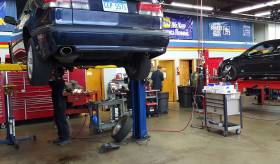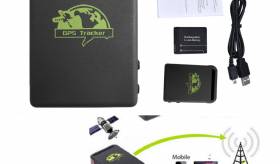How Do I Recover My Deductible From the At-Fault Driver?

Who Pays My Deductible if a Car Accident isn’t My Fault?
This is really a two-part question, as part of the decision is up to you. While you might end up paying for your deductible at first so that you can file for damages with your insurance company sooner rather than later, you can file with the other drivers insurance company as well.
Each of these options has both pros and cons to it, which you will want to weigh out before continuing. The first option a person has is filing a claim with your own insurance company.
There are advantages to filing a claim with your own insurance company; these are clear benefits that you may want to take advantage of. The first of these is time. Property damage claims tend to be resolved more quickly with your own insurance company as opposed to someone else’s. Since you are their client, it benefits them to give you an excellent customer service experience. Your insurance provider will assess and estimate the damage to your vehicle and pay to have it fixed. In cases where your car was totaled, they will pay the amount your vehicle was worth at the time the accident occurred.
Estimates like these are easy to calculate and are generally not able to be negotiated for more. This helps these types of claims to move more quickly on average. In terms of personal injury claims, multiple factors are involved. This includes the extent of your medical treatments and injuries. Make sure to keep property damage claims and personal injury claims separate for the most efficiency.
Another benefit of filing with your own insurance company is you could get reimbursed for your deductible. This will be talked about more in-depth later on. In terms of the disadvantages of filing a claim with your insurance company, there are a few. Some people are worried that their premiums will go up if they file a claim with their auto insurance provider, and other people simply cannot afford the deductible at the time their accident occurs. Some insurance companies do not raise car insurance premiums if the accident wasn’t your fault, but others do, so this is something to check up with your company about.
How Do I Prove to My Insurance Company That I’m Not At-Fault For An Accident?
It is essential to file a police report after a car crash because this information is used to prove to your insurance company that you were not at-fault in the accident. Many states require people to call the police if anyone is injured or if there is more than $1,000 in property damage. You will also want to notify your car insurance company that you been in an automobile accident. Notifying your auto insurance provider is different than filing a car insurance claim.
Why Should You Go Through Your Own Insurance Company?
If you utilize your own insurance company when filing a claim, you may be able to get your deductible back. It is possible to sue the other driver for the deductible, but keep in mind that your insurance company will likely go after the other driver themselves. This is called subrogation.
How Subrogation Works
Subrogation happens when an insurance company goes after another driver for a settlement. If your insurance service collects money from the other driver, your insurance company will refund your deductible from the money in some situations. If they decide to go this route, there are a few things that you need to do.
First off, you should get in touch with your insurance company and ask them if they are planning on pursuing the other driver. In some cases, they might not choose to subrogate. If this happens, you will usually be sent a letter advising you of this decision. It is an excellent plan to keep in contact with them even if you decide to pursue reimbursement for your deductible by suing the other driver yourself.
Secondly, you will want to find out if your insurance company will reimburse you from any money that is collected. Sometimes an insurance company will provide you “first money.” This means that your deductible will be refunded first after money is collected. In other policies, the insurance company will pay themselves first and apply anything above their expenses towards your deductible.
Keep in mind that if you choose to go after the other driver, you are not only able to sue them for your deductible; you can sue for the entire amount of your automobile damages. If you are successful in collecting damages, you are entitled to not only reimbursement of your deductible, but also court costs and any fees, before your auto insurance company gets reimbursed.
Final Notes
Always remember it is essential for you to stay in touch with your auto insurance company every step of the way if you are in an automobile accident. By keeping in communication with them, you will not only help speed up the process, but you will also be aware of what they are pursuing on their end.




Add new comment